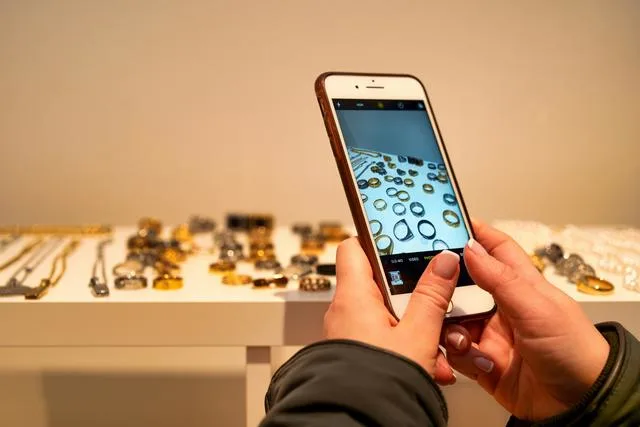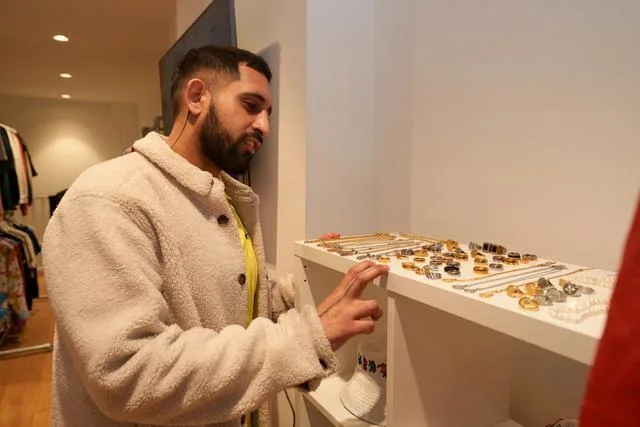
Fine jewelry may be one of the biggest purchases you ever make — and it may also be one of the most intimidating.
There are so many new terms to learn, and then there’s that nagging worry that the diamond of your dreams might actually be a piece of glass (which is why you’ll definitely want to get it appraised).?
Finding a good jeweler to walk you through the process can put your mind at ease, but how do you know who to trust? After gathering recommendations from family members and friends, consider fielding this list of questions to any jeweler you're considering before making a purchase.?
1: What services and expertise do you offer?
Many jewelers have in-house experts to take you all the way through the buying process and support you for the lifetime of your jewelry. They should have a gemologist who can explain a stone’s unique properties, along with designers who can create unique pieces for you, and repair and maintain your jewelry. You can check on the store’s expertise by seeing if they are listed with the American Society of Jewelers and Gemologists.
?
2: How long have you been in business?
Not to knock the new jewelers on the block, but a store that’s been in business for 30-plus years is doing something right. “Look for someone who is a fixture in your local community,” says Amanda Gizzi, spokesperson for Jewelers of America, a nonprofit organization of jewelers, and the Diamond Council of America, a nonprofit organization that offers professional training in diamonds. “Jewelry stores are often deeply rooted in their neighborhood.” Reading reviews can help you verify the legitimacy of a jeweler and get a sense of any issues that have cropped up in the past.
?
3: What do you have that fits my budget?
A jeweler should be able to find something that suits your style and your wallet (as long as you’re not hoping to score a $20 diamond ring). If the store keeps trying to upsell you beyond your budgetary limits, look elsewhere.?
?
4: What associations do you belong to?
Associations like the Gemological Institute of America, Jewelers of America, and American Gem Society require members to complete additional (and ongoing) training, and follow a strict code of ethics. “A jeweler who is a member of a trade organization commits annually to a code of responsible practices,” Gizzi says.
?
5: What are your return and warranty policies?
One sign that you’ve found a good jeweler is they offer a return period if you are not satisfied with the piece. Make sure you get return policies or warranties in writing, and if you’re using an online jeweler, make sure that this information is clear at the time of purchase, including who will pay for shipping and insurance for the return. “Know who you are buying from and clearly understand the return policy,” Gizzi says. “Two diamonds can have similar characteristics on paper, but they can look very different in person.”?
?
6: Can I see information about the jewelry?
The answer to this should be a resounding yes. “Jewelry should be clearly labeled with the metal karatage and all stones should be fully labeled and disclosed,” Gizzi says.
A precious stone should have a certificate from a respected gem lab, like the American Gem Society (AGS), Gemological Institute of America (GIA), International Gemological institute, or Gemological Science International. This will tell you about the stone’s size, cut, color, clarity, whether it’s natural or lab-grown, and any treatments that have been used. There should also be a number on the certificate which you can use to look up the gem’s report independently on the gem lab’s website for verification.?
?
7: Can I see the stone under magnification?
See if your jeweler can review the stone’s unique qualities with you, and let you see it through a gem microscope or loupe.?
?

8: Where did you source this stone?
Stones can come from a variety of sources — and many people now are looking for confirmation that the stone was mined in an environmentally friendly way and that the workers were paid fairly.?Check out our guide to buying ethical jewelry.
?
9: What kind of repair or maintenance do you offer?
“Reputable jewelers provide a high level of service and expertise, not only with a jewelry purchase but also with care and maintenance,” Gizzi says. Fine jewelry should be cleaned and inspected by a professional every six months to a year, to check for wear or damage — and to keep that gem sparkling. Many jewelers offer in-house repairs, rather than sending them out to another place.
?
10: Question for yourself: Do you trust this jeweler?
Deep down, you’ll probably have a sense about the jeweler as you talk to them. If anything feels off, trust your instincts — keep looking and doing more research until you're confident that you've chosen the right jeweler for you.?
Trustpilot is a review platform that is open to all. The companies and profile pages referenced in this article are provided for informational purposes only and are not recommended, endorsed by, or representative of the views of Trustpilot. The Trustpilot companies linked in this post are expected to abide by?Trustpilot’s Guidelines, but have not been reviewed for compliance.





